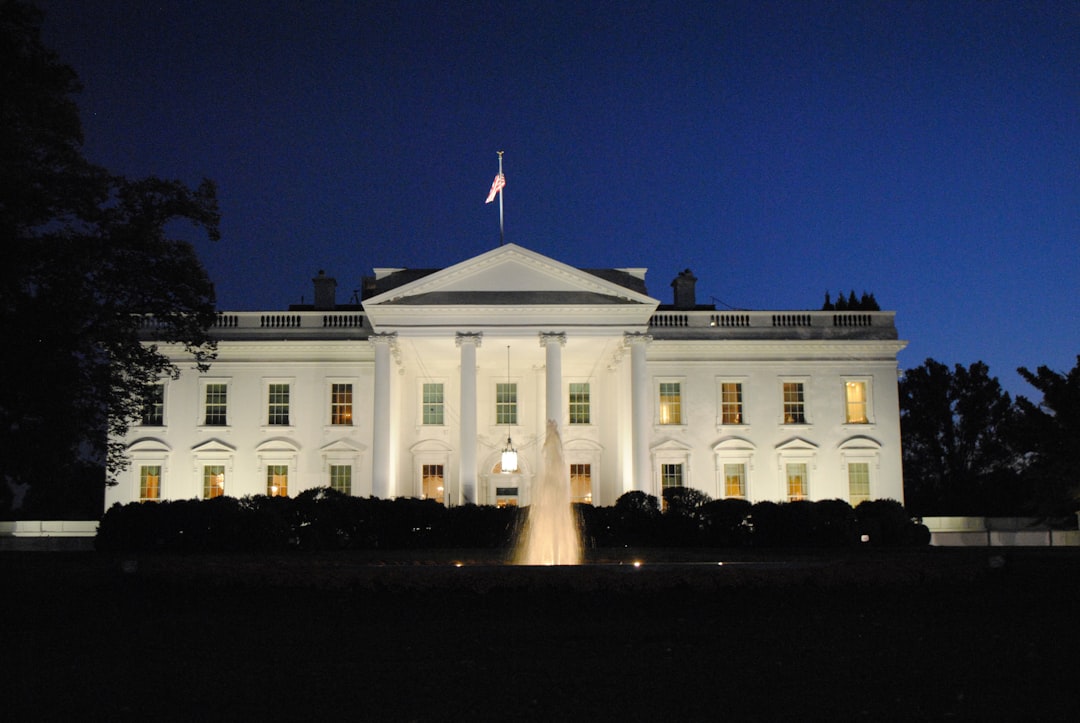Edition No. 36
Crackdown on crypto crime; Governments share roadmaps; Panama’s crypto bill goes to court; and more. Here's what happened from 1/27/2023 - 2/03/2023.
Welcome back to Around the Blockchain, the weekly letter dedicated to keeping readers like you up to date on the fast-paced world of Crypto & Law by airdropping current stories directly to your browser.
Table of Contents:
On the Docket (Top Stories of the Week)
Bird Watching (Tweet, tweet!)
The Public Ledger
Podcasts, Videos, & Blogs (The faces, voices, and pens of Web3’s brightest contributors)
Closing Statements
On the Docket
Five things you might have missed last week:
1. Global Law Enforcement Agencies Have Productive Week in Fight Against Crypto-Related Crime
Global Cops Crackdown on Crypto Crime
The global law enforcement agencies had a productive week in their fight against crypto-related crime, as they disrupted the activities of the Hive ransomware group and sentenced John DeMarr, a promoter of foreign cryptocurrency companies, to 60 months in prison. The U.S. Justice Department and Europol announced the disruption of Hive, which targeted various organizations worldwide and extorted payments in cryptocurrency, leading to the involvement of 13 countries, including EU member states, the UK, and Canada, in the operation. The US Federal Bureau of Investigation (FBI) captured Hive’s decryption keys, preventing another $130 million in payments, and seized control over the servers and websites used by Hive to communicate with its members and victims. DeMarr was sentenced for his role in a multi-million dollar securities fraud scheme, where he induced investors to invest in his companies based on false and misleading representations, resulting in a forfeiture of $3,513,305.41.
See Also: Washington Post
2. US and UK Government’s Release Crypto Roadmaps
Where We’re Going, We Don’t Need Road[map]s
The UK and US governments are taking steps to regulate the cryptocurrency industry. The Biden Administration released a blog post last week outlining its framework for responsible digital asset development and addressing numerous risks long plaguing the industry–risks such as skirting financial regulations, conflicts of interest, poor cybersecurity, as well as incidences of outright fraud. The administration is ramping up enforcement and public-awareness programs, and will unveil priorities for digital asset research and development. It encourages Congress to expand regulators' powers, strengthen transparency and disclosure requirements, and limit risks to the financial system.
The UK government, for its part, has outlined plans to regulate the cryptocurrency industry and curb the reckless practices contributing to the failure of FTX. The proposals include strengthened rules for financial intermediaries and custodians, regulation of risky loans made between crypto firms, and enforcement of tougher transparency requirements on crypto exchanges. The regulation aims to protect consumers, ensure fair standards, and allow the UK to become a leader in crypto and blockchain technology.

3. Panama’s Supreme Court To Rule On Cryptocurrency Legislation
Panama’s Crypto Bill In Uncertain Waters
Panama's Supreme Court will rule on the country's cryptocurrency legislation, known as the "crypto bill." President Laurentino Cortizo sent the bill to the court for review, claiming it violates the constitution's core principles and is unenforceable. The Supreme Court must now decide if the bill is unenforceable or if it can be approved with modifications. The bill, introduced in September 2021, aimed to regulate cryptocurrencies in the country and make the country compatible with the digital economy, blockchain, crypto assets, and the internet. The bill would allow the use of cryptocurrencies such as Bitcoin and Ethereum as an alternative payment method and regulate the tokenization of precious metals and the issuance of digital value.

4. Federal Reserve Issues Policy Statement Restricting Crypto-Asset Activities of State-Chartered Banks
Feds Reign On Banks Crypto Parade
The Federal Reserve has issued a policy statement regarding the activities of state-chartered banks that are members of the Federal Reserve System, called the Crypto Policy. The policy applies to all state member banks but is most relevant for uninsured state member banks. The policy restricts uninsured state member banks to have the same activities as insured state banks, making it less likely for uninsured banks to engage in novel activities and have access to Federal Reserve services. The Crypto Policy takes effect soon after publication in the Federal Register and it is based on the authority of the Federal Reserve to restrict the activities of state member banks under the Federal Reserve Act. The policy reiterates that all activities by state member banks must be conducted in a safe and sound manner that complies with laws and regulations. The Federal Reserve has not yet seen facts and circumstances that would justify rebutting its assumption that crypto-asset activities are not permissible for banking organizations.
See Also: Federal Reserve BOG Press Release; Cointelegraph
5. Coinbase and LBRY See Victories in Recent Court Rulings
Crypto’s Good Day in Court
Two court rulings this week yielded positive results for both Coinbase and LBRY, giving some industry analysts hope for similar outcomes in ongoing and future securities-related litigation.
To start, Coinbase won the dismissal of a proposed class-action lawsuit in New York brought by customers accusing the cryptocurrency exchange of selling unregistered securities and failing to register as a broker-dealer. U.S. District Judge Paul Engelmayer stated customers who transacted on the Coinbase and Coinbase Pro trading platforms could not show the company sold or held title to the 79 tokens they traded. Judge Engelmayer also said Coinbase had no direct role in the transactions and dismissed the federal securities law claims with prejudice, meaning they cannot be brought again.
Additionally, a judge ruled against a motion by the U.S. Securities and Exchange Commission (SEC) to classify LBRY's secondary market token sales as securities offerings, which could have a huge impact on the ongoing Ripple case. Crypto lawyer John Deaton argued secondary market LBC sales were not securities and cited a legal paper analyzing 76 years of securities cases in the U.S. The judge was non-committal on whether LBC was a security, but Deaton argues if a token's secondary sale is not a security, then the token is not a security. The outcome of the LBRY hearing is crucial for future securities cases, including the SEC's case against Ripple, which alleged in 2020 that Ripple sold XRP without registering it as a security.
The recent Coinbase and LBRY rulings could impact other ongoing similar cases, such as one in Manhattan where customers of crypto exchange Binance are appealing a lawsuit dismissed last March and the SEC’s case against bankrupt lender Genesis Global Capital and the exchange Gemini Trust for allegedly selling unregistered securities.

Bird Watching
Tweet, Tweet, Tweet!
Judge dismisses proposed class action suit alleging Coinbase sold unregistered securities.
 We appreciate the federal court's careful consideration and affirmation of what our User Agreement makes abundantly clear: Coinbase does not hold title to customer assets.A U.S. district court judge has dismissed a proposed class action suit alleging that Coinbase sold unregistered securities and improperly failed to register as a broker-dealer. By @NelWang https://t.co/D9qnfaS6MU
We appreciate the federal court's careful consideration and affirmation of what our User Agreement makes abundantly clear: Coinbase does not hold title to customer assets.A U.S. district court judge has dismissed a proposed class action suit alleging that Coinbase sold unregistered securities and improperly failed to register as a broker-dealer. By @NelWang https://t.co/D9qnfaS6MU CoinDesk @CoinDesk
CoinDesk @CoinDesk
The Public Ledger
Highlights from the hundreds of sources gathered each week by our research AI. Always DYOR - but in case you don’t have time, here’s some of ours:
General News and Opinion
Metaverse, Blockchain & Digital Assets: 10 Legal Challenges for Companies in 2023
The Nice Classification Adds Language Related to NFTs, the Metaverse and Crypto Assets
U.S. - Federal
SEC Mango Markets Crypto Suit Zeroes in on Governance Tokens
People who posted Sam Bankman-Fried's bail should be named, U.S. judge rules
U.S. - State Law
Cash, Card, Or Crypto? – Florida's License Requirement For Crypto Currency
Cryptocurrency and state legislation: the current state of crypto state taxes in 2023
International
Britain sets out plans to regulate crypto industry in wake of FTX collapse
El Salvador's Bitcoin Law 2.0: the Digital Assets Issuance Law

Podcasts, Videos, and Blogs
The brightest voices & sharpest pens:
Law of code - Jacob Robinson sits down with Greg Xethalis, General Counsel and Chief Compliance Officer at Multicoin Capital, to discuss GBTC, Bitcoin-backed ETPs, Algorithmic stablecoins, and much more!
Bankless - The Bankless team discusses all the crypto news that took place in the first week of February including Bitcoin NFTs, ChatGPT, and Celsius withdrawals.
Bloomberg Crypto - Bloomberg senior editors Anne Irrera and Philip Lagerkranser are joined by Bloomberg reporter Emily Nicole. The group does a deep dive into Wall Street’s approach to crypto, Bitcoin’s great January, and an independent examiner’s stern report on Celsius.
Unchained - “The Chopping Block!” team is back again. They dive into the controversy surrounding Bitcoin NFTs, Ethereum’s multi-dimensional fee structures, and much more!
DaoTalk - DAO Talk looks at how governance is going over at Uniswap Foundation before discussing the importance of on-chain governance.
Closing Statements
We want to hear from you:
If you enjoyed what you read today, subscribe to receive the weekly publication and give the authors a follow on Twitter for updates on what’s next for the newsletter!
If you didn’t enjoy it, let us know why! We value the opinion of our readers above all else. After all, this letter is for you. - Kyler, Chris, and the Around the Blockchain News team.
Quote of the Week:
AI will not replace you. A person using AI will.
Thanks for reading Around the Blockchain! Subscribe for free below:















